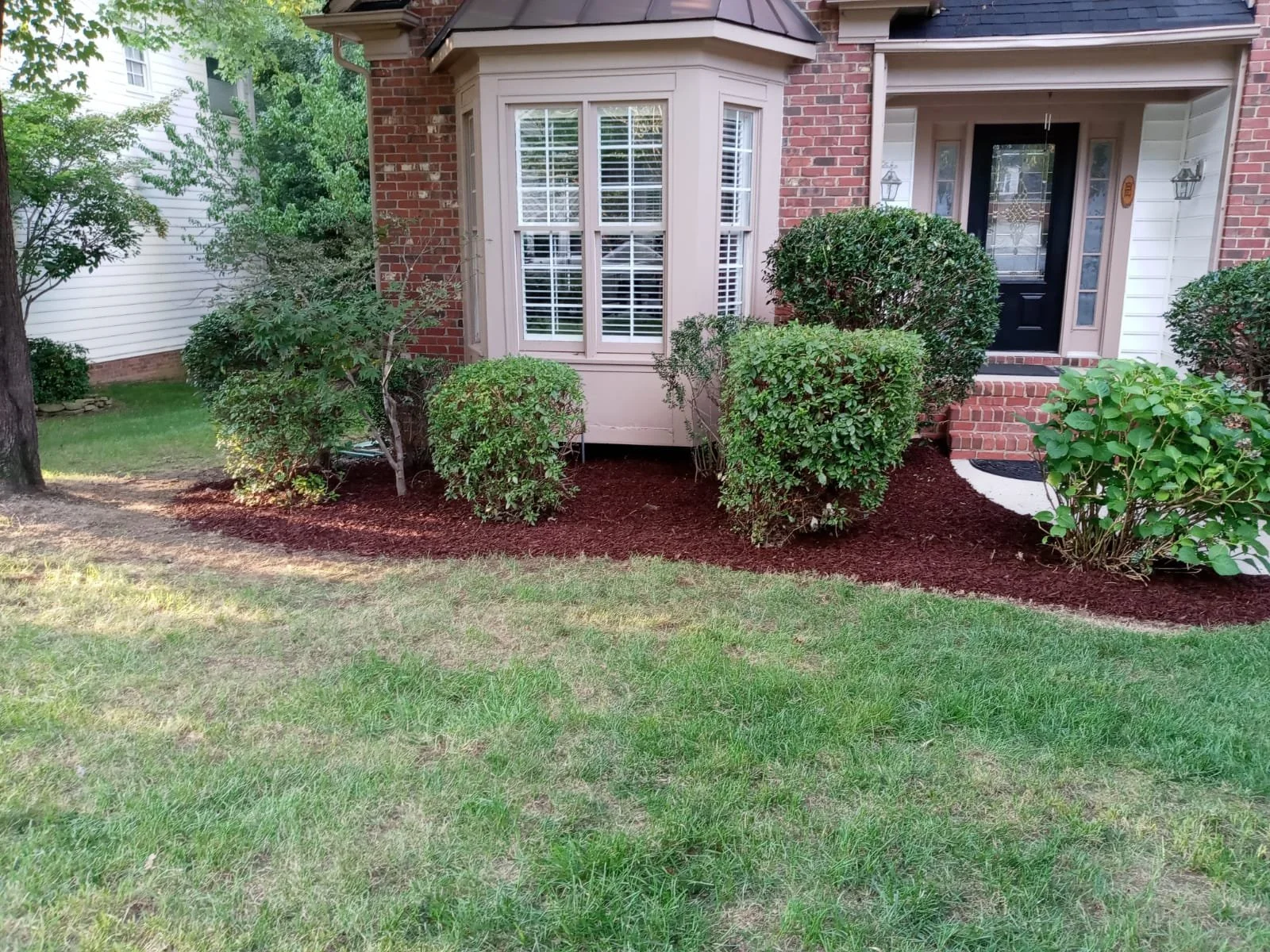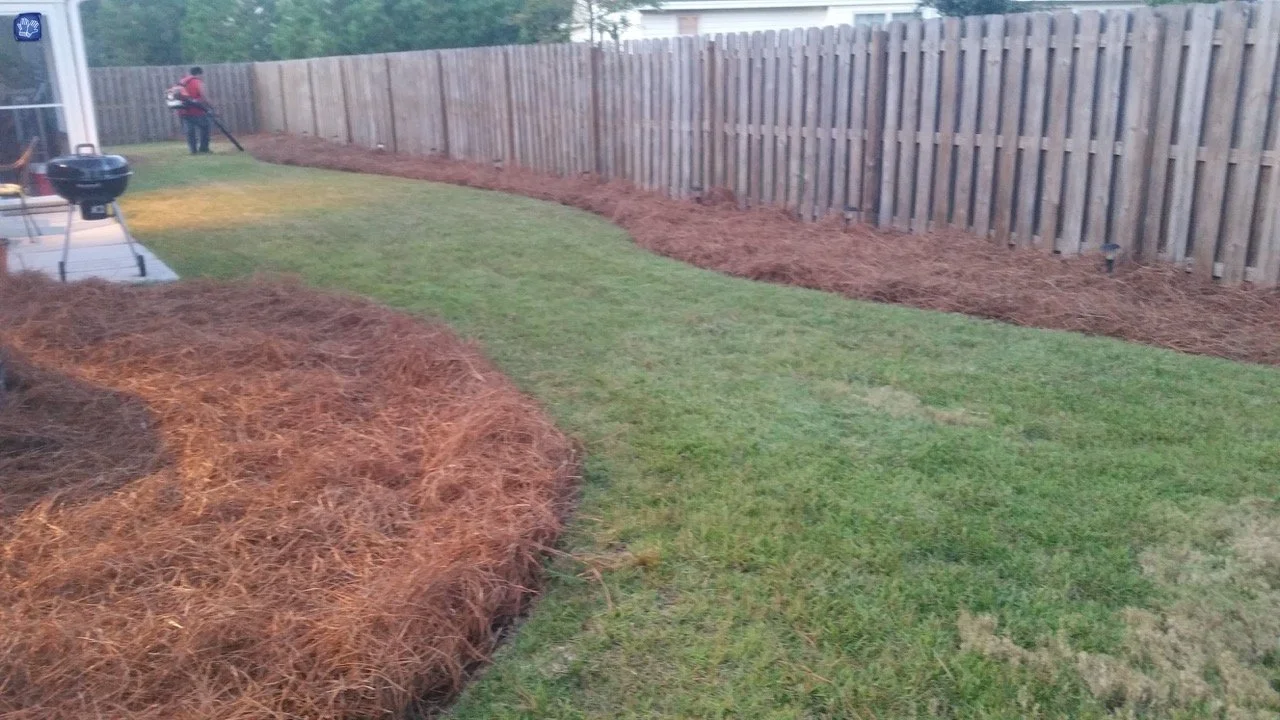Why Is Mulching Beds Important?
Why Is Mulching Beds Important?
Well, there are actually a few reasons, but first, let's make sure we know what mulch is: Mulch is a covering layer that separates bare soil from direct elemental exposure; it can be, and usually is, a layer of organic matter (leaves, wood, straw, and/or other natural materials) that may or may not be broken, destroyed, shredded, and/or decomposed. It can also be an inorganic matter like plastic sheeting or covering. The mulch you and I are accustomed to seeing isn’t as convoluted as my definition makes it seem, but the general idea is that there are many different options for mulching your garden and plant beds. Here are some different mulches you might recognize:
Pine Needles
So why is mulch important? Is it just to make the garden bed look a little nicer? Well, that is a part of it; it definitely makes your garden and home look much more appealing when you have a nicely done, fresh layer of mulch. However, it has many more vital properties than just curb appeal. There are 5 to be exact:
1 - It protects the soil: Mulch actually protects your soil, and the vital microbiology (microbes) living in its upper layers, from the elements; mainly the sun and its heat, but also wind, rain, snow/the cold, as well as any and all animals walking over it. The elements can do some serious damage to your soil and its microbes. Excess heat or cold is bad for your soil, and the mulch acts as an insulating layer for the soil so it doesn’t stray into the extremes of temperature.
2 - It feeds the soil: Mulch made from organic matter also feeds your soil as it decomposes over time. Because you’re creating an insulating layer, you’re simultaneously allowing the microbes, as well as other organisms living in the soil, to move up to and out from the surface, as they decompose the bottom layer of mulch. This essentially is slow composting directly into your soil, and breeding higher numbers of microbes at the same time. Having a mulch layer of 2 or more inches allows sufficient insulation to allow this to happen over the course of a growing season. You’ll find that some mulches work better for your tastes and soil needs, so feel free to try different options. In some cases, you may find that mulching your garden beds twice a year is a good pace if you have, or have nurtured, a good soil with a faster rate of mulch decomposition.
3 - It allows good air exchange while providing protection: One of the most important things a good soil needs is air, and I'm sure at least some of you are slightly surprised by that. All organisms need oxygen to survive, including the ones in your soil. The benefit organic mulch provides for soil, in addition to protection and food, is air flow. This is because the surface area of mulch chips, needles, etc. is much larger than that of soil. The cracks and crevices of the mulch allow for air exchange while it also covers, protects, and feeds the soil. This means that worms, ants, beetles, microbes, etc. can open up more holes and openings in the soil underneath the mulch, creating more air exchange for deeper layers of soil as well.
4 - It helps retain water: A key issue with bare soil is that it’s always dry. Bare soil has nothing to help it retain water like a living mulch (grasses, clovers, ground cover plants, etc.) or a regular mulch layer. This is a problem if you want to have healthy soil because healthy soil has microbiology as well as food, water, and shelter for the microbes. Because mulch acts as an insulating layer, it slows down the rate of evaporation of water from the soil, which allows the soil to stay more saturated with water; this creates an environment in which microbes can thrive in the many layers of soil, as well as at the surface.
5 - Mulch suppresses weeds: What’s the best way to kill a plant? Well, depriving it of sunlight is certainly effective. This is exactly what mulch can do. The best way to do this is by scalping the weeds (cutting them all the way down to the ground) or by pulling out as many whole weeds as you can, and then applying a thick layer of mulch. You can even use multiple layers of different mulches such as landscape fabric, leaves, different wood chip mulches, pine needles, straw, cardboard, and other materials. This is a great way to get rid of weeds without having to resort to things like round-up and other chemicals.
Mulch is clearly about much more than just the look it gives your property, although that is a great bonus. Providing your soil and your plants the food, water, and protection they need is the true reason for having mulch for all of your garden beds. Without it, the soil will die, and take your plants with it. So when spring or fall rolls around, make sure you get your property taken care of with a fresh layer of mulch.


